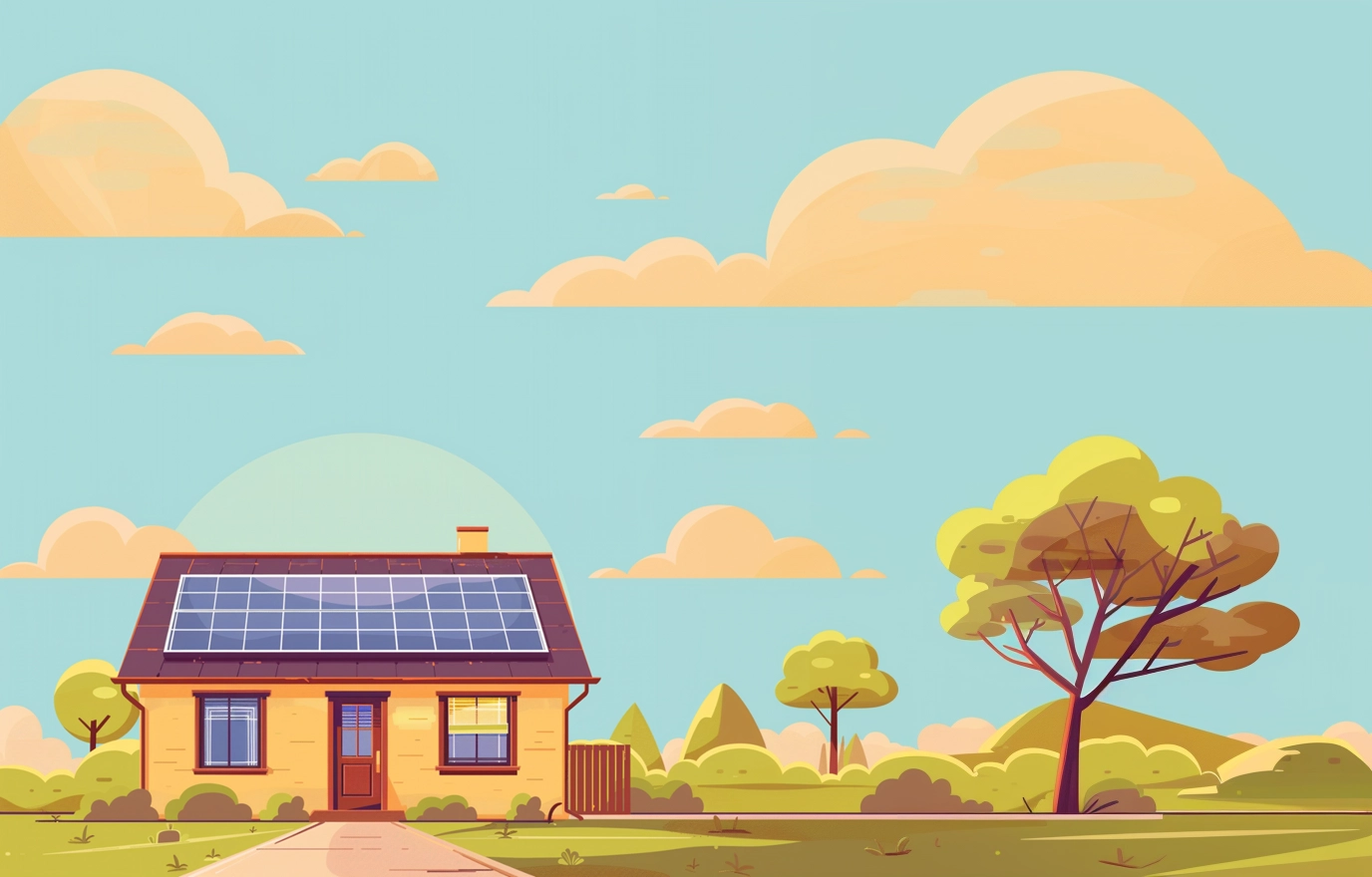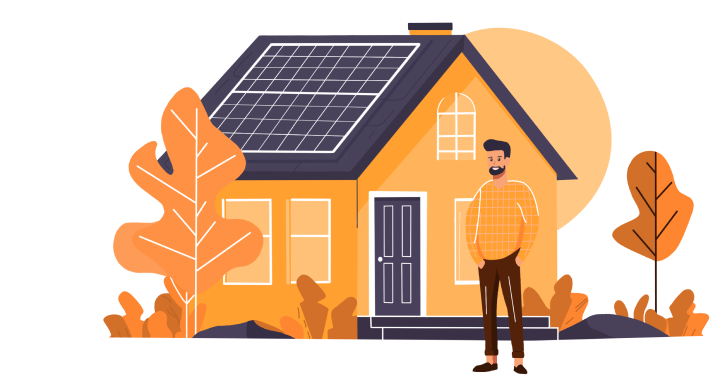Deciding to install solar panels for your home is a significant step toward not only reducing your energy bills but also contributing positively to the environment.
If you are contemplating the switch but getting wrapped up in the costs and complexity, many homeowners share your concerns, especially when considering the investment required and the intimidating task of selecting the right installer.
At Solar Energy Host, we understand these hurdles and are committed to making the switch easier. Let's explore how easy and beneficial it can be to install solar panels in your home. Here are a few things to consider.
#1: The viability of solar panels
Assessing your local solar potential
If you want to get an idea of how much you can save before you install solar panels, you can use tools like the PVWatts Calculator from the National Renewable Energy Laboratory. This tool helps you understand the amount of energy your panels might produce based on your location, offering insights into the savings and efficiency you could see.
You can also speak to local solar providers to learn about the benefits of installing solar panels at home.
Local regulations and permits
Each area has its own set of regulations concerning the installation of solar panels. It's important to understand these local guidelines, which can include zoning laws, building codes and specific permits required before installation begins. You can contact your local building department or work with a solar installation company for guidance.
Evaluating your home's solar viability
The condition of your roof matters since it needs to support the weight and structure of the panels. Additionally, the orientation and angle of your roof affect how much sunlight your panels can capture.
Shading from trees or nearby buildings can also impact the performance of your rooftop solar setup. Detailed assessments by solar installers can offer a clearer picture of what solar panel installation might look like for your specific situation, how effective it would be and what changes could be made.
#2: The right provider and plan
Choosing the right solar provider
Selecting the ideal solar provider is a pivotal step in transitioning to solar energy. At Solar Energy Host, we'll help you find a provider that aligns with both your financial and environmental goals with a comprehensive comparison.
You can get detailed profiles of top rated solar installers in your area. You'll be able to view multiple quotes and offers to compare and make an informed decision based on the specifics of your energy requirements and local availability.
Planning and designing your solar system
Once you've selected your provider, the next step involves detailed planning and design of your solar system. This stage allows you to adapt the setup based on your home's architecture, your energy consumption and optimal sun exposure.
Your provider will work closely with you to come up with a setup that maximizes efficiency and aligns with your energy goals, whether it's solar panels on a flat roof or even a system installed on the ground.
#3: Making the most of your solar setup
Federal and state incentives
State incentives are designed to offset the initial cost to install solar panels and make them more accessible, though their availability can vary by location. These may include tax credits, rebates and grants designed to lower the financial barriers to solar adoption.
You can look into these government benefits early in your planning process before you install solar panels to ensure that you maximize the financial benefits available to you.
Rely less on the grid
Incorporating off-grid battery storage systems when you install solar panels can boost your energy independence. This technology allows you to store excess power generated during peak sunlight hours, use it during periods of low sunlight and minimize your reliance on the grid.
The ability to store and manage your own energy can reduce your utility bills and give you a consistent, reliable power supply. Besides increasing your self-sufficiency, this setup reduces the need for fossil fuels and benefits the environment.
Leverage your property value
Houses equipped with solar panels often attract a premium in real estate markets, reflecting the growing consumer interest in sustainability and energy efficiency.
This increase in property value is a compelling reason for many homeowners to consider solar installations. Solar panels provide not just utility savings but also substantial returns in the event of a property sale. Plus, when you install solar panels, you contribute to a home's appeal, offering future buyers the benefit of reduced energy costs.
Frequently Asked Questions (FAQ)
What factors should I consider before installing solar panels?
Assess the solar potential of your location by checking how much sunlight your area receives. Also, consider the solar panel mounting. Check if it is viable to install solar panels on your roof—not just structurally but also in terms of orientation and shading. A roof that receives ample sunlight with minimal shading typically yields the best results.
Check your local zoning laws and building codes, as well as any incentives like tax rebates or grants that might affect the installation cost and feasibility. Lastly, consider your household's energy consumption to determine the size and type of solar system that would most effectively meet your needs. Your solar installer will be able to help you with these and other concerns you may have.
What is the difference between on-grid and off-grid solar systems?
On-grid systems are connected to the public electricity grid. They are ideal for those who can access the grid easily and want the security of a backup power source. On-grid systems allow for net metering, where excess power generated by your solar panels is sent back to the grid, often resulting in credits from your utility company.
Off-grid systems are not connected to any utility grids and are entirely self-sustaining. Off-grid systems require a robust battery setup to store electricity for use when solar energy is not being produced, such as at night or on cloudy days. This type is suitable for off-grid living where grid access is hard to get or too expensive.
Are there any maintenance costs associated with solar panels?
Solar panels are remarkably low-maintenance. To maintain efficiency, they just have to be cleaned periodically to remove any dirt or debris that could block sunlight.
You can have your system inspected occasionally by a professional to ensure everything is functioning correctly and to address any potential issues before they lead to significant repairs.
Most providers offer long-term manufacturer warranties that cover any defects. These warranties ensure that any potential issues are resolved without significant expense, providing long-term security on your investment.
The power of the sun in the palm of your hand
Solar Energy Host is your trusted partner in harnessing the power of the sun. With our straightforward and secure platform, we connect you with top local providers to ensure you receive the most competitive quotes for solar panel installation.
Our simple process allows you to enter basic information, compare quotes and choose the best offer for your needs. Start saving today and see why we are the go-to resource for those looking to reduce their electricity bills through solar power.
Join countless homeowners who have switched to a sustainable future with Solar Energy Host and enjoy serious savings.



















